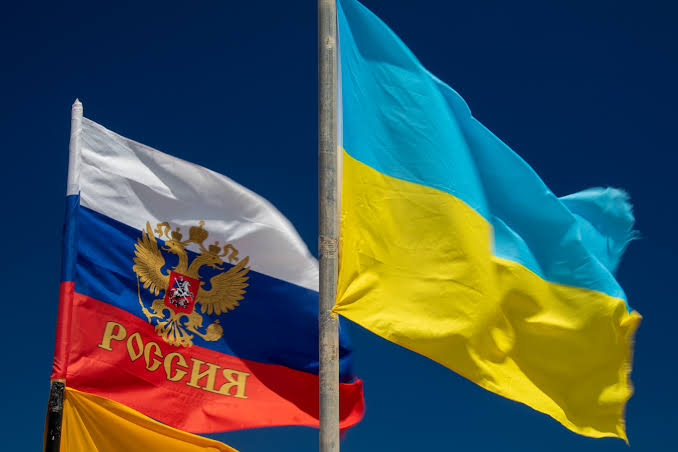
U.S. provided Ukraine with US$1.5 billion in military aid from 2014 to 2019. In 2021, The Sunday Times reported that the amount of military aid given was US$2.5 billion. In January 2022, the United States put 5000 to 8500 troops on high alert.
The relationship between Russia 🇷🇺 and United States 🇺🇸 was generally warm under the Russian President Boris Yeltsin (1991–99) until the NATO bombing of Yugoslavia in the spring of 1999, and has since deteriorated significantly.
Prior to Vladimir Putin regaining control of the Russian government in 2012, relations between the two countries significantly cooled due to Russia’s annexation of Crime and Russian military intervention in Ukraine. Deterioration continued with the Russian military intervention in the Syrian Civil War, and over Russia’s interference in the 2016 and 2020 U.S. elections.
Following the 2022 Russian invasion of Ukraine, relations reached its lowest point since the Cold War. Mutual sanctions imposed since 2014 were significantly expanded by the U.S. and its allies following the invasion, including several state-owned banks, oligarchs, and Putin himself.
Under no scenario is Russia’s armed invasion of Ukraine legal under contemporary international law and norms.
Self-defense is the only justification for use of force against another country, according to international law. This condition is found in the U.N. Charter and is binding for all 193 U.N. member countries.
The charter’s only clear exception to prohibiting the use of force is self-defense, “if an armed attack occurs” against a country. Rescuing citizens who are trapped or in danger in another country is recognized as a form of self-defense. But these interventions are strictly limited to evacuating citizens, not overthrowing governments.
Nothing that Ukraine has done to date could be construed as an “armed attack” on Russia and justify any Russian claim to self-defense.
Even if Putin’s false claim that Ukraine is targeting Russian-speakers in eastern Ukraine were true, it would not justify the countrywide attacks he has unleashed.
Intervening for humanitarian reasons, such as trying to prevent large-scale loss of life or suffering, has been asserted by a few countries and activists as another rationale for use of force. But this justification has not yet been widely accepted, unless the U.N. Security Council authorizes the intervention. It did so when it authorized a U.S.-led military force in Somalia in 1992 to help prevent famine.
In the light of the circumstances, Russia is in clear breach of international law and law of armed conflicts.
The United States will defend every inch of NATO territory with the full force of American power, I am expecting the USA to play the role of Big brother by using NATO to settle the current war crisis on ground but rather American chooses to use eye for an eye by joining forces with NATO by protecting Ukraine.
In all of these, its best we sue for peace, there is absolutely no justification to destroy lives and properties. Let One Love reign.
Chief Patrick Osagie Eholor (Ultimate Equal), President One Love Foundation
Samuel Ihensekhien Jr,
Legal representative, One love Foundation